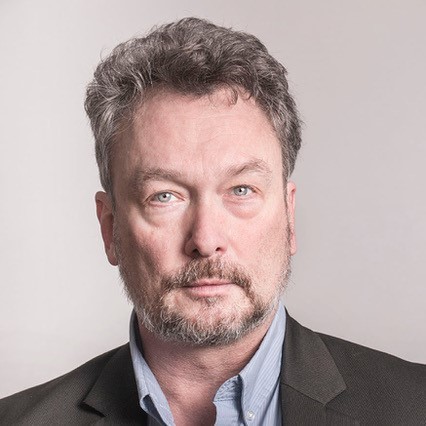University of Virginia alumnus Michael Bérubé shows how a scholar can take the analytical skills learned in one area and focus on other topics to draw new ideas about them, and in so doing add to our knowledge and improve our understanding of human nature.
Bérubé’s recent books range from “The Humanities, Higher Education, and Academic Freedom: Three Necessary Arguments” to “The Secret Life of Stories: From Don Quixote to Harry Potter, How Understanding Intellectual Disability Transforms the Way We Read” to “Life as Jamie Knows It: An Exceptional Child Grows Up.”
Bérubé, who attended Columbia University as an undergraduate, delved into literary theory as he worked on his master’s and doctoral degrees at UVA. He married fellow UVA doctoral student Janet Lyon. He and Lyon landed tenure-track positions at the University of Illinois at Urbana-Champaign. In 2001, they joined the English department at Pennsylvania State University, where Bérubé is now the Edwin Erle Sparks Professor of Literature.
Backtrack to 1991, when something happened that led him in a different direction in his scholarship as well as in family life: their second son, James, was born with Down syndrome. Bérubé’s research then took him from the topic of his 1994 book, “Public Access: Literary Theory and American Cultural Politics,” to the one that changed their lives: “Life As We Know It: A Father, A Family, and an Exceptional Child,” which the New York Times named a “Notable Book of the Year” in 1996.
In addition to pursuing the relatively new academic specialty of disability studies, Bérubé became active in faculty issues. In 2012, he served as president of the Modern Language Association, the main professional organization for professors of literature and languages. He joined the International Advisory Board of the Consortium of Humanities Centers and Institutes from 2011 to 2017, coinciding with his term as director of Penn State’s Institute for the Arts and Humanities. Immediate past chair of Penn State’s Faculty Senate, he also got involved with the American Association of University Professors, an independent national group devoted to advocating for academic freedom and related issues, and has served on its Committee A on Academic Freedom and Tenure from 2009 to 2018.
Bérubé has returned to the Grounds before to give scholarly talks; most recently, he participated last year in the Consortium of Humanities Centers and Institutes’ annual meeting, moderating a discussion about August 2017’s violent “Unite the Right” events at UVA and Charlottesville.
The two topics, disability studies in literature and issues of academic freedom, are bringing him back to the University this Friday. He will lead a discussion on “The Secret Life of Stories” at 1:30 p.m. in Bryan Hall room 229. At 3 p.m., he will give a talk, “Is Shared Governance Really Part of Academic Freedom?,” sponsored by the UVA chapter of the American Association of University Professors. It will be held in Halloway Hall (inside Bavaro Hall) at the Curry School of Education and Human Development.
UVA Today asked Bérubé a few questions about UVA and the topics of his upcoming talks.
Q. When did you know you wanted to pursue a career in academia? Was there something that turned you in that direction? How did UVA play a role?
A. It may sound funny, but I came to graduate school being pretty ambivalent about academia. I thought the odds of survival were so long, and the job market so awful ... and I was admitted without any fellowship support, so had to delay my admission and work as a word processor in New York City for a year just to pay the first year’s tuition and rent.
And then from 1988 to 1990, suddenly (and very briefly) the market was great. By that point, I was so wrapped up in my dissertation and my teaching that I went on the market enthusiastically, with no backup plan.
So really, my time at UVA was the turning point. By the end of my second year in the program, after taking courses with Ralph Cohen and Richard Rorty that spring, I knew I wanted to make my career in academia. And my dissertation director, Michael Levenson, was an ideal mentor.

Alumnus Michael Bérubé earned his Ph.D. in English in 1989. His scholarship on disability incorporates his experience with his son, Jamie, who was born in 1991 with Down syndrome. (Contributed photo)
Q. What led you to look at disability in literature?
A. When my second son, Jamie, was born with Down syndrome, I began to look at disability in everything! But it actually took me years to reread texts I’d taught many times, like Maxine Hong Kingston’s “The Woman Warrior,” and realize that they were very much about disability.
I wrote a book about Jamie when he was still quite young, “Life As We Know It: A Father, A Family, and an Exceptional Child,” in 1996. And I wrote lots of things about the representation of disability in popular culture, and social policies addressing disability. But I didn’t get serious about reading literature in terms of disability until 2004, which is when I started the train of thought that eventually produced “The Secret Life of Stories” (2016), about intellectual disability in literature.
Q. Why does it make a difference to look at what part disability plays in stories?
A. Because it’s a woefully undertheorized aspect of the human condition. And once you see how it operates, and how ubiquitous it is, you can’t un-see it. You get to the point where you even appreciate movies like “Deadpool 2” (really!), not only because they’re hilarious fourth-wall-breaking metacommentaries on superhero films, but also because they offer a caustic take on the history of how we have institutionalized and tried to “cure” people with disabilities. Yes, the mutants in Marvel comics and movies are meditations on the history of disability. See the film – I’m not making this up.
Q. Can you say a little bit about “motive” being your topic for that talk (without giving too much away)?
A. Sure! OK, so the subtitle of my book mentions the Harry Potter series. Why? Just ask yourself why Albus Dumbledore goes from being a haughty, self-important young graduate from Hogwarts, an arrogant dude who has fascist dreams of a society ruled by elite wizards (like himself and Gellert Grindelwald) who crush us Muggles into abject submission, to being an enlightened Hogwarts headmaster who seeks peace with the Muggle world and challenges every kind of entrenched hierarchy in the magical world.
Spoiler alert: It’s all about his sister Ariana – on both ends of the trajectory. Ariana is rendered intellectually disabled by a Muggle attack, and her death is the crisis point in Dumbledore’s life. We never meet Ariana; it’s not a question of how she’s represented in the novel or the film. It’s all about the fact that she is the motive force of Dumbledore’s life, and all because of her (painfully acquired) disability.
Q. Switching to the topic of your other talk, how does the American Association of University Professors help faculty?
A. The AAUP doesn’t merely defend academic freedom; the AAUP defines what academic freedom means in the United States. Its famous “Redbook,” whose official title is “Policy Documents and Reports,” is an indispensable compendium of best practices, representing over a century of sustained thought on how universities should be governed. Part of my talk, in fact, will rely on the 1994 AAUP statement on the relation between faculty governance and academic freedom.
It’s wonky stuff – it’s all about how to keep the engine room running so that everyone in the building can function. But that’s precisely what the AAUP is about.
Q. Can you tell us why Garcetti v. Ceballos is an important case that professors should know about?
A. Garcetti v. Ceballos is the 2006 Supreme Court decision that held that public employees do not enjoy First Amendment protection for statements they make in the course of their official duties. It involved a district attorney’s office, not a campus. But as Justice Souter’s dissent noted, this ruling has disturbing implications for faculty members at public universities who speak up on matters of institutional concern, which we do whenever we serve on an important university committee (or send a critique of a policy to our department head by email, for instance). So now, universities have to make it clear in their governance documents that (to quote Penn State’s academic freedom policy):
Faculty members are free to speak and write on governance issues of their respective departments, colleges, units, libraries, and of the University as a whole, and are free to speak and write on all matters related to their professional duties without institutional discipline or restraint.
I am happy to say that UVA has similar language in its academic freedom policy. Every college and university should.
Media Contact
Article Information
September 25, 2019
/content/qa-alumnus-expertise-spans-academic-freedom-study-disability-literature

